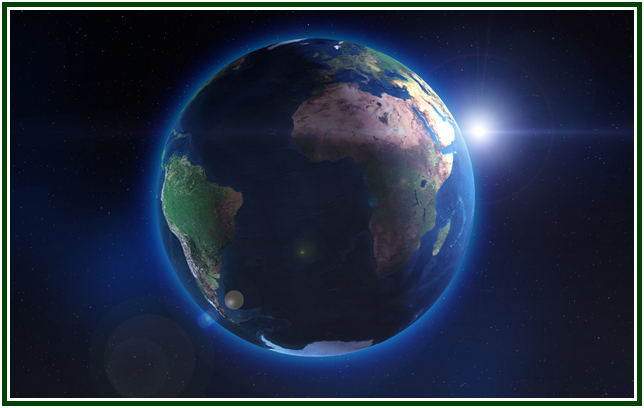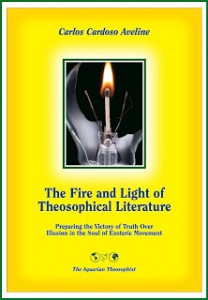
A Global Citizenship Must
Emerge Along Moral and Spiritual Lines
B. P. Wadia

000000000000000000000000000000000000000000
Editorial Note:
The following text is reproduced from
the book “Living the Life”, by B.P. Wadia,
Indian Institute of World Culture, Bangalore,
India, 1981, 156 pages, pp. 71-74. A leading
associate of the United Lodge of Theosophists,
Mr. B. P. Wadia (1881-1958) was one of the
main theosophical authors of the 20th century.
(CCA)
00000000000000000000000000000000000000000000
In its practical bearing,
Theosophy is purely divine ethics.
(“The Theosophical Glossary”, on “Theosophia”)
All that was great, generous, heroic, was, in days of
old, not only talked about and preached from pulpits as
in our own time, but acted upon sometimes by whole nations.
(“The Key to Theosophy”, H.P. Blavatsky, 2nd Indian ed., p. 226)
In numerous places H.P.B. emphasizes the importance of the practice of Theosophical ethics by students. Theosophical ethics are not something unique and special – they are ancient, like the metaphysical and philosophical doctrines of Theosophy.
“These ethics are the soul of the Wisdom-Religion, and were once the common property of the initiates of all nations,” wrote H.P.B. Not only did Gautama and Jesus preach the ancient ethics, but with every attempt at Theosophizing any race or civilization – e.g., the movement founded by Ammonius Saccas – these old ethical principles were promulgated. The modern Movement founded by H.P.B. in 1875 follows the ancient pattern in this as in all things. In “The Key to Theosophy” she points out that “Theosophy has to inculcate ethics,” and in presenting moral teachings she uses the same principle as in offering philosophical teachings. Just as she synthesized the teachings of every ancient school of philosophy, so also in the sphere of ethics. The second of the Three Objects of her Society, she declared, was –
“The serious study of the ancient world-religions for purposes of comparison and the selection therefrom of universal ethics.” (“Theosophical Glossary”, on “Theosophical Society”)
The exercise of these ethics in daily living unfolds “the latent divine powers in man” referred to by H.P.B. in formulating the Third Object.
And in her “Key to Theosophy” she explains:
“They are the essence and cream of the world’s ethics, gathered from the teachings of all the world’s great reformers. Therefore, you will find represented therein Confucius and Zoroaster, Lao-tzu and the Bhagavat-Gita, the precepts of Gautama Buddha and Jesus of Nazareth, of Hillel and his school, as of Pythagoras, Socrates, Plato, and their schools.”
The Moral Philosophy of the Wisdom-Religion, like its living science and its universal metaphysics, is the time-honoured expression of the Great Kosmos. The Kosmos is not only visible and material but is also energic and moral. If man’s mind is derived from the Divine Mind, his soul is a ray of the Universal Soul and lives by Moral Laws which manifest as Virtues.
In her “Five Messages to the American Theosophists” [1] H.P.B. states:
“ . . . The essence of Theosophy is the perfect harmonizing of the divine with the human in man, the adjustment of his god-like qualities and aspirations, and their sway over the terrestrial or animal passions in him.” (p. 6)
And in promulgating Theosophy it is necessary to bear this in mind:
“The function of Theosophists is to open men’s hearts and understandings to charity, justice, and generosity, attributes which belong specifically to the human kingdom and are natural to man when he has developed the qualities of a human being.” (Ibid., p. 9)
So we have the task of unfolding our humanity and helping our fellow men to do likewise. That this mission is not something chimerical is explained thus:
“The life of altruism is not so much a high ideal as a matter of practice. Naturally, then, Theosophy finds a home in many hearts and minds, and strikes a resounding harmony as soon as it reaches the ears of those who are ready to listen. There, then, is part of your work: to lift high the torch of Liberty of the Soul of Truth that all may See it and benefit by its light. Therefore it is that the Ethics of Theosophy are even more necessary to mankind than the scientific aspects of the psychic facts of nature and man.” (Ibid., p. 12)
But how is this task different from what every church pulpit and every social-service programme is trying to accomplish? First, ours is not a creedal or organizational appeal. Other institutions refer to Christian ethics and Hindu morality, and sometimes mix up religious ritualism and social customs with moral principles. How can churches preach Universal Ethics any more than can a political party? They are like business houses with their chants, exploiting the self-interest of their adherents for sectarian purposes. The practice of the Law of Universal Brotherhood is not encouraged.
Secondly, while it is true that good conduct is stressed and ethical values are discussed, the pure first principles of morality rooted in the soil of universal philosophy are unknown. True philosophy is absent where salaried priests are present. In the scientific researcher, too; altruism, pure and genuine, is absent. It has taken our civilization over half a century to recognize what Mahatma K.H. taught in 1880:
“Exact experimental science has nothing to do with morality, virtue, philanthropy- therefore, can make no claim upon our help until it blends itself with metaphysics.” (U.L.T. Pamphlet No. 29, p. 6)
The use of the atom bomb to destroy two Japanese cities shocked the conscience of almost the entire world and demonstrated man’s inhumanity to man, which the researches of modern science encourage. Even today the secrecy enveloping the progress of the manufacture of destructive bombs remains unbroken – this is not a manifestation of Universal Brotherhood on which Universal Ethics are founded. Where are the scientists and where is the nation which will break this black secrecy and compel the destruction of this dark, destructive use of weapons? Will our India do it refusing to use the knowledge gained by its researchers in the newly established research institutes, for nefarious, destructive purposes?[2] Will its scientists use their knowledge openly for the constructive development of a peace-loving civilization – not national but international?
Not knowledge but heart enlightenment of a large number of men and women will compel the national States to stop the destructive use of the discoveries of modern science, and a similar phenomenon must follow in the sphere of organized, creedal religions.
The emergence of the international State implies international citizenship. This must not be along politico-economic lines only, but fundamentally along moral and spiritual lines. Politics and economics will continue to be nationalistic unless the real significance of Universal Brotherhood is perceived. And for its full perception some practice of Divine Ethics is necessary. Human beings must aspire to feel the Divinity within and begin to act like shining gods, not as political animals.
NOTES:
[1] “Five Messages to the American Theosophists” was published by the Theosophy Company, Los Angeles. It is also available in our associated websites. (CCA)
[2] In the 21st century, India is among the countries which possess atomic bombs. (CCA)
000
On the role of the esoteric movement in the ethical awakening of mankind during the 21st century, see the book “The Fire and Light of Theosophical Literature”, by Carlos Cardoso Aveline.

Published in 2013 by The Aquarian Theosophist, the volume has 255 pages and can be obtained through Amazon Books.
000